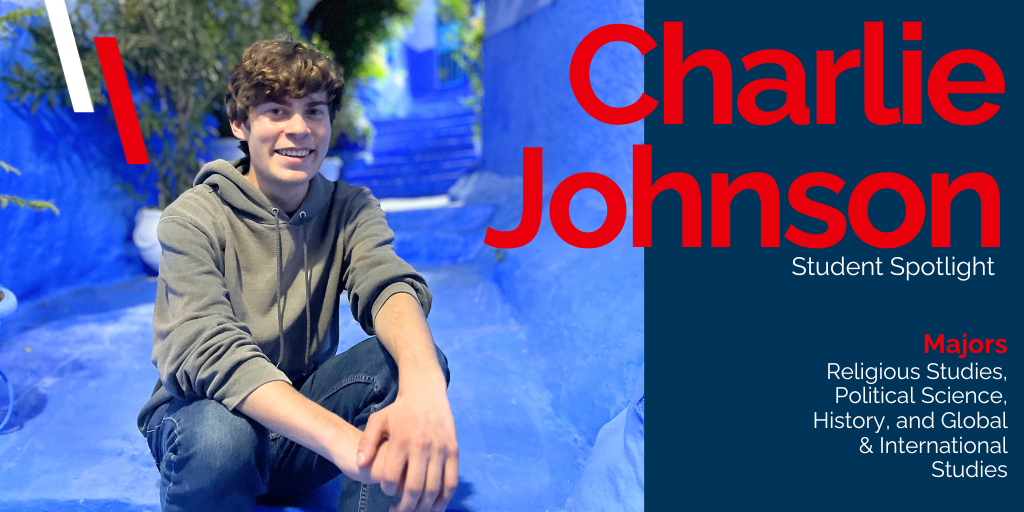
Charlie Johnson grew up here in Lawrence, but with a quadruple major in Religious Studies, Political Science, History, and Global & International Studies, his studies have taken him great distances away from the Hill. During his time at KU, Johnson has been a part of an internship through the Army University Press, research on the Druze religion in the Levant, and so much more. Looking ahead, he hopes to work in international human rights law or foreign policymaking. Learn more about Johnson’s College story below.
Where are you from? Why did you decide to come to KU?
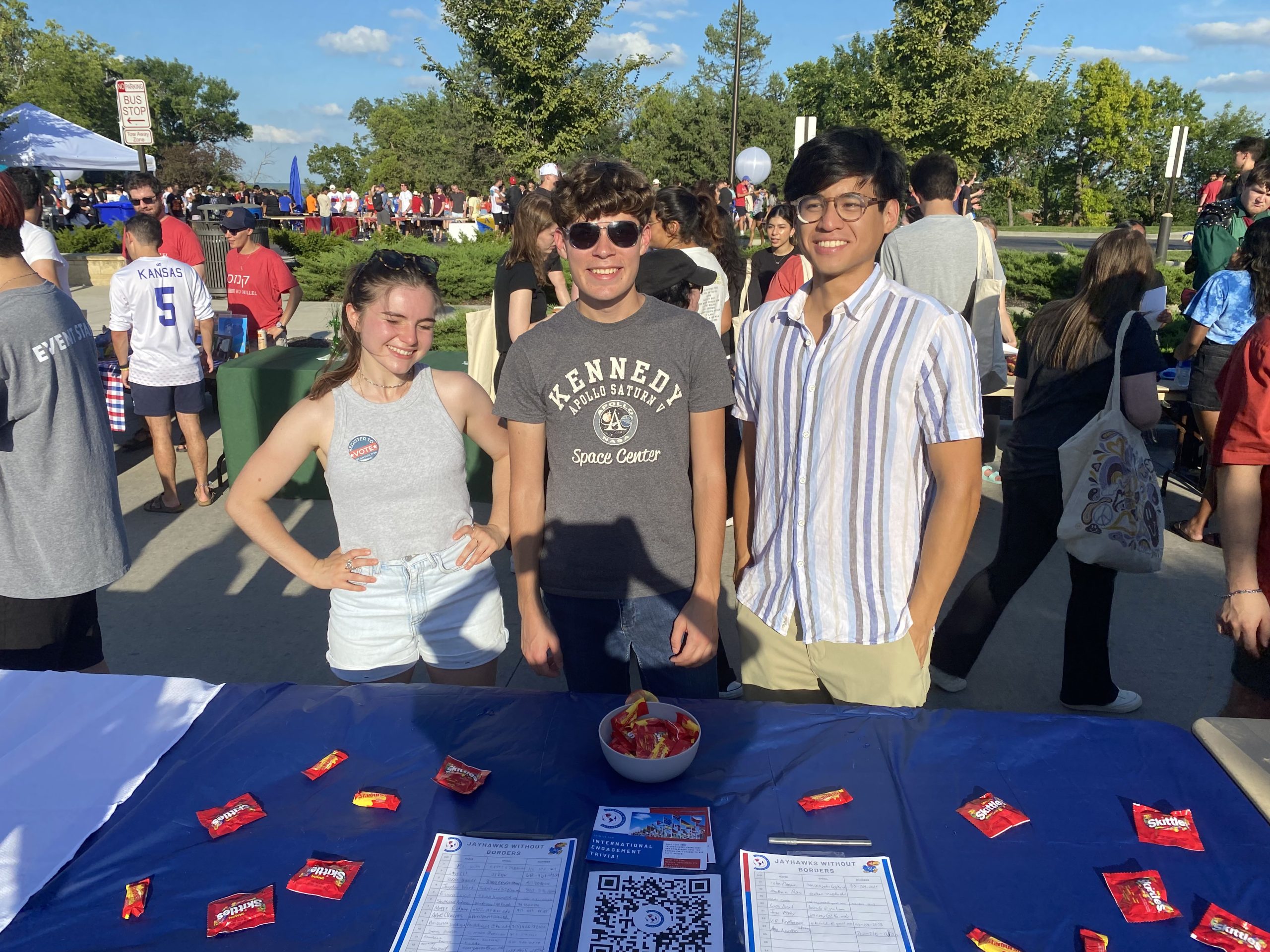
I, like many other “townies” I know, initially had conflicting feelings about going to college in my hometown. However, as I was working my way through high school, no one was more instrumental in dispelling this irrational fear than my older sister, Kaitlyn. Seeing all that she was able to accomplish in her time here at KU inspired me to do the same, taking advantage of the fantastic programming and supportive faculty and staff to make the most of my undergraduate experience.
Why did you choose your majors? And how do they complement each other? Was there a moment when you decided this is what you wanted to study?
Aside from the support system and myriad opportunities the university offers, the flexibility of the curriculum also drew me to KU. While I have been interested in both religion and politics for as long as I can remember, I was not quite sure how to translate these interests into an academic plan when entering college. However, the KU Core allowed me to explore these passions while making progress toward my bachelor’s degree. Through this process, I have been dedicated to studying the relationship between religion and politics over time and space, resulting in my four majors. When coupled with my Arabic studies, this pursuit has led to a focus on genocide and religious-based human rights violations in the Middle East and North Africa.
What is the most exciting part of your majors? What do you think is most valuable about your experiences in these programs?
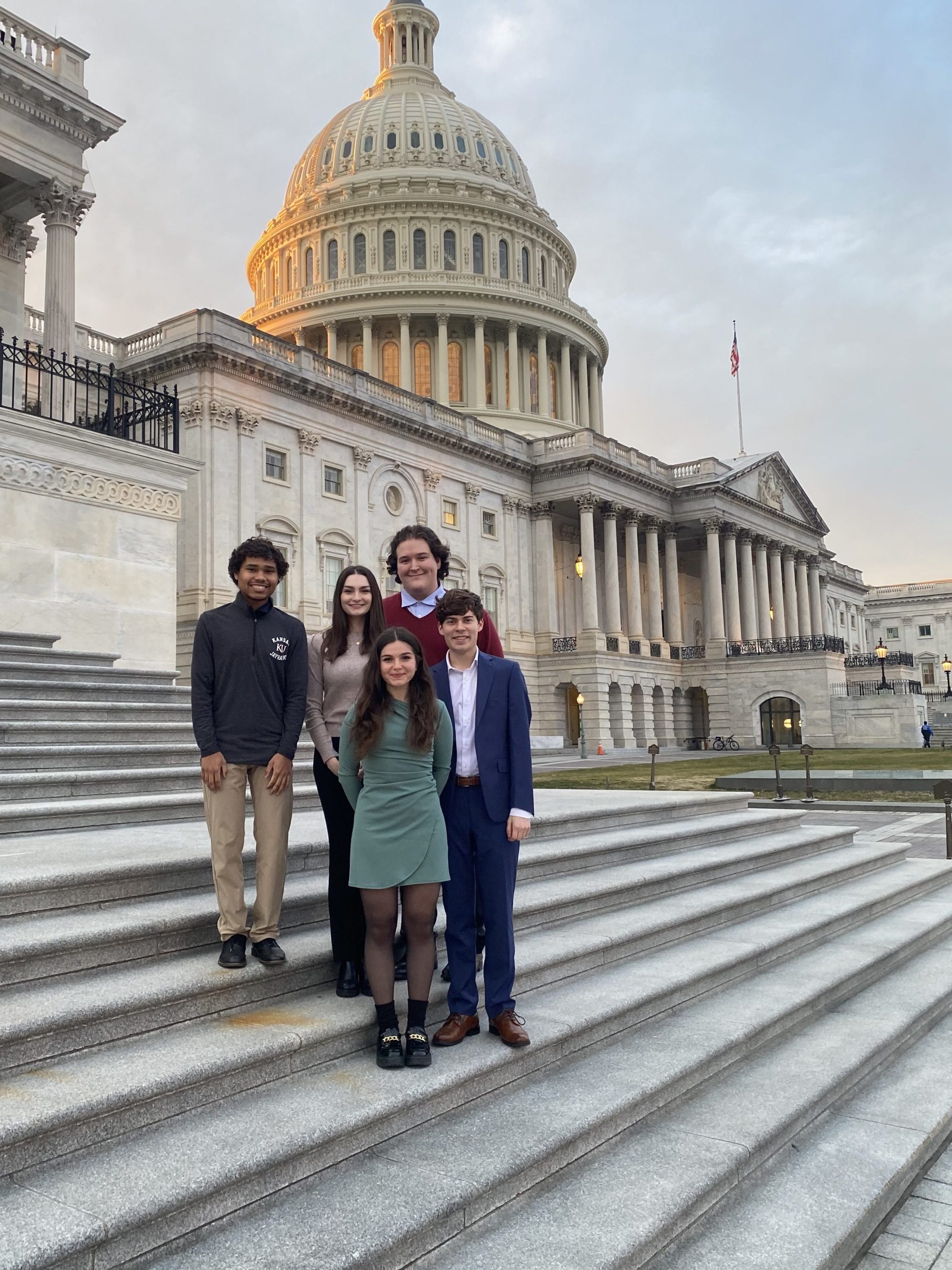
I appreciate how my majors allow me to take an interdisciplinary approach to international religious freedom. My history thesis, for example, managed to combine elements from each of my majors, exploring American media coverage of the Armenian and Yezidi genocides and the effects of American immigration discourse. Aside from addressing religious minority communities in the Middle East, my general area of focus, I was able to draw on my studies in political science to discuss discriminatory immigration policies in American society. In this way, integrating my various studies is exciting, not merely recounting history through a different lens but actively addressing current social issues affecting the American political landscape.
What is the benefit of being in the College alongside students studying sciences, arts, and humanities?
I have found that some of the most interesting conversations and projects in my undergraduate coursework have been prompted by students with backgrounds outside of my majors. Normally, I would not think to discuss the intersection of climate and gender in Sudanese cultural practice. I would also not typically have the confidence to create a graphic novel demonstrating the dynamics of nationalism in Xinjiang. But with peers from different backgrounds, these discussions and projects have stuck with me long after the classes ended. Interacting with these different approaches, I believe, encourages deeper engagement with the subjects themselves, resulting in a more fulfilling learning experience for everyone involved.
Have you done any internships, study abroad programs, or any other learning experiences you’d like to share? If so, what was that like?
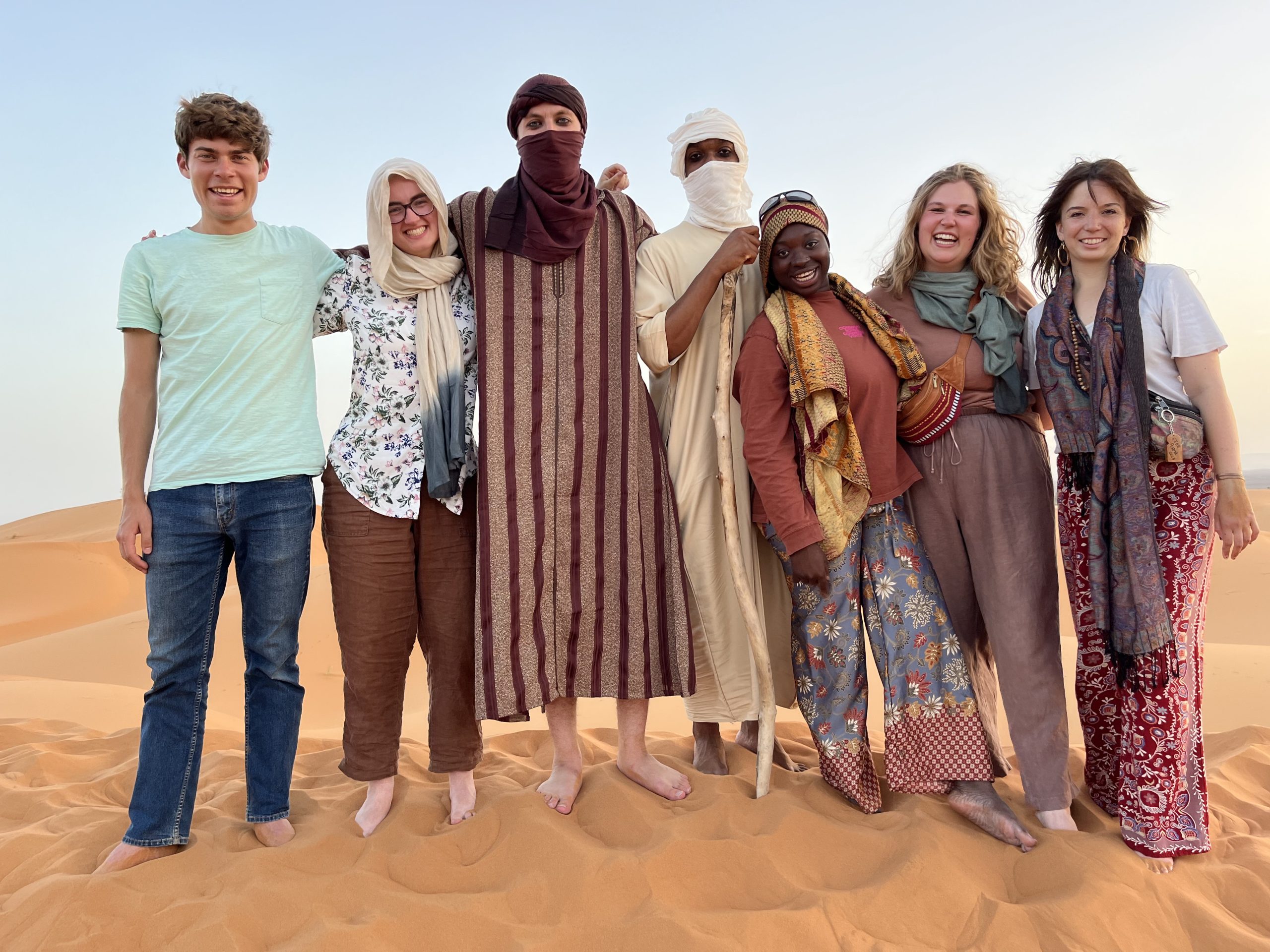
For my History major, I earned credit for an internship with Army University Press, learning about the practical application of a history degree in the field of documentary filmmaking. With the Religious Studies department, I was also able to earn credit for my research with Dr. Rami Zeedan on the Druze religious minority community in the Levant. As an extension of this research, I have also been able to assist with the first ever Druze Studies Symposium as well as conducting a literature review to launch the Druze Studies Journal.
Last summer, I was also able to make progress in my International Studies major, serving as a Rabat office intern and intercultural advisor for the Council on International Educational Exchange, a study abroad nonprofit. This semester, I am interning with the Atlantic Council’s Rafik Hariri Center and Middle East Programs as part of the Political Science department’s Washington DC Internship Program, earning capstone credit for my political science major in the process.
Give a shout-out to a professor, mentor, advisor, or someone at KU who has helped you.
Jen Duhamel, Michelle Ward, Dr. Mike Wuthrich, Dr. Rami Zeedan, and Dr. Brian Lagotte, as well as the countless mentors in all of my respective departments, the Arabic language program, and the Dole Institute of Politics, are just a few of the amazing faculty and staff we have here at KU.
I want to give a very special thank you to Dr. Marie Brown. Dr. Brown has not only enabled me to ask my most interesting questions but also to consider, in true humanities fashion, why I should be the one to ask them. Moreover, in a field of study where the outcomes often feel very bleak, Dr. Brown has helped me to stay grounded, focused, and passionate about bringing important stories to the forefront without getting too lost in the bigger picture.
What do you want to do when you graduate?
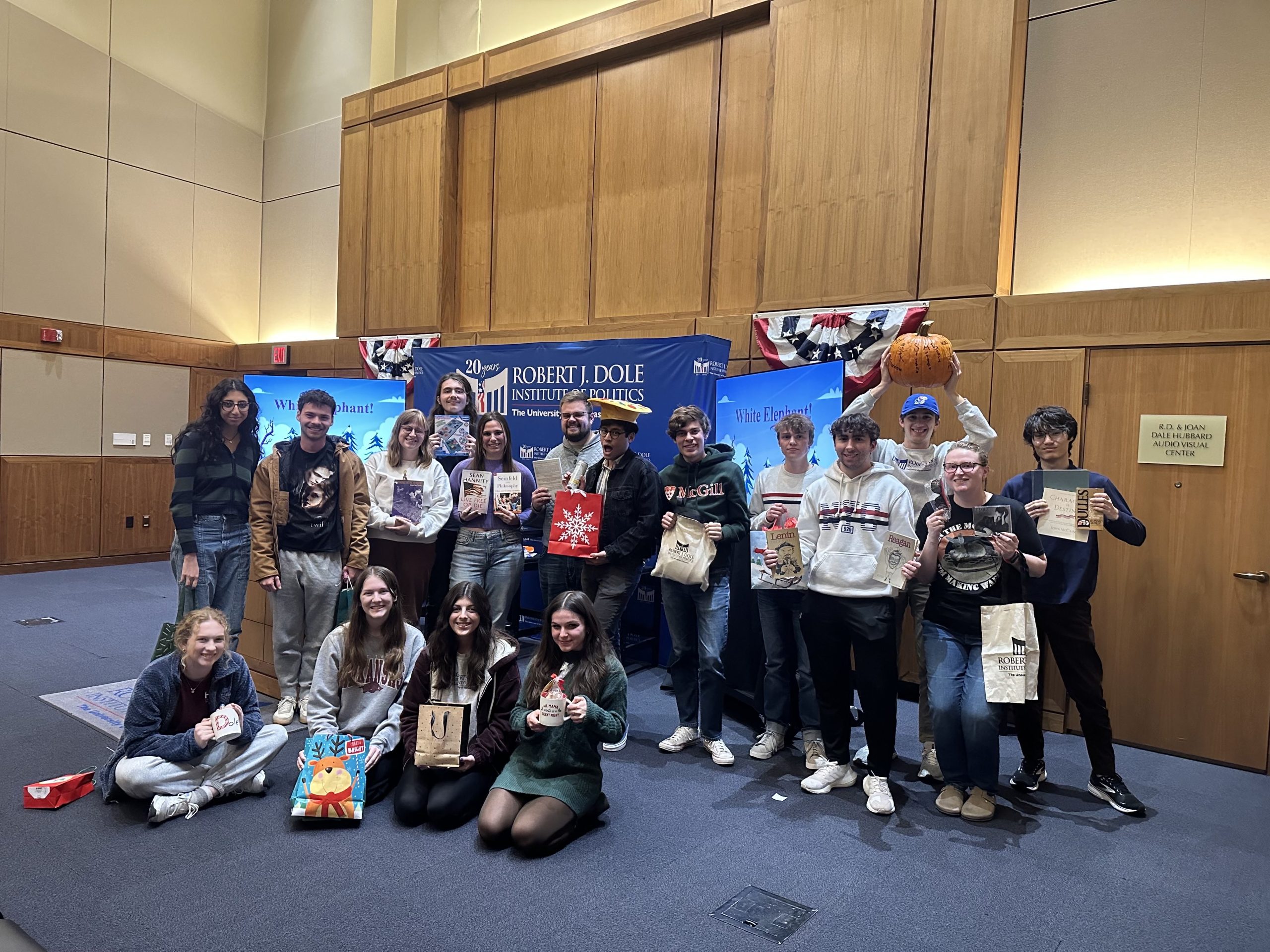
After graduation, I hope to work for a couple of years at a think tank or NGO with a focus on international religious freedom and genocide prevention. I intend to eventually pursue an international law degree and/or master’s degree in foreign policy centered on the Middle East and North Africa with the intent of entering either the field of international human rights law or foreign policymaking.